Parenting can be difficult. Many of us wish our children had come with an instruction manual. Am I doing something wrong? How can I be the best parent to my child? These questions are common with many new parents. John Locke sought to give answers and guide us on our journey of parenting. Read on to find out more about his views and recommendations.
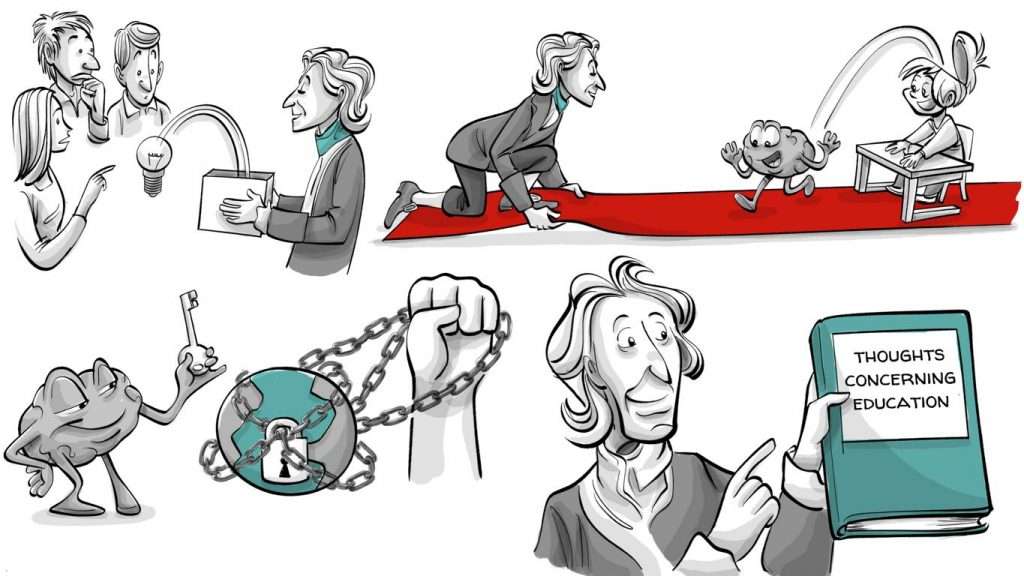
srikanth dharma sastha
I still can’t understand.. why no one has thought me about great people like Locke in history, instead of those bloodthirsty conquerors?
The Full Story
During a time when the church controlled what people could believe and the kings ruled over what people ought to own, John Locke, an English doctor, popularized three ideas that changed society and parenting forever.
Freedom of religion
First — people keep fighting over their beliefs because nobody can actually know which one is true. To solve this problem everyone should have freedom of thought and the right to choose their own religion.
The social contract
Second — kings can’t just do as they please, because people have natural rights to liberty, property, and life, and hence need to be asked for permission.
The foundations for modern education
Third — parents should avoid punishing their children since the use of emotions to make them behave well can make them sensationalists.
Instead, they should allow their children to be guided by thoughts.
Some thoughts concerning education
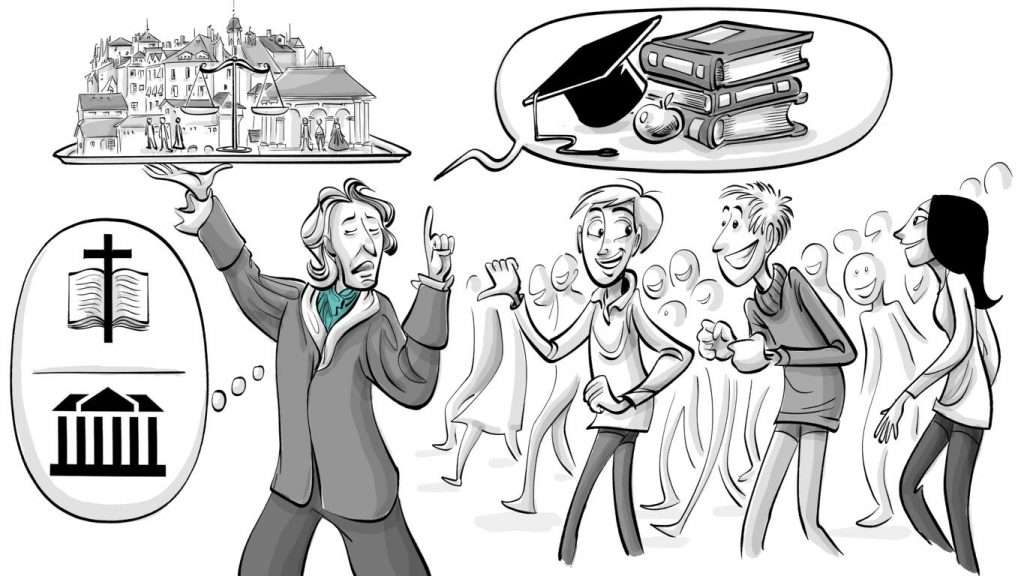
Locke’s ideas on religion and democracy became the foundation of most liberal societies. His thoughts on education, however, may have been even more influential.
Locke understood that most people doubt new ideas, without any other apparent reason than them being uncommon. However, teaching children how to think rationally and all for themselves works. Education is therefore the key to freeing society from political, and psychological tyranny; and his book, “Some Thoughts Concerning Education”, became a parenting guide to that world.
The book was originally written to help his friends raise their son, Edward, to become a virtuous adult — the ultimate goal of education. Locke defined virtue as a combination of self-denial and rationality — because we need to control our desires to think clearly.
He proposes 4 main ideas to help Edward:
Tabula Rasa and associationism

First, newborn babies’ minds are like a blank slate – also known as tabula rasa. All knowledge comes from our perception which then leaves imprints on that blank slate. Because a child is highly sensitive to new experiences, even the smallest association of ideas can have lasting consequences.
If you let “a foolish maid” convince Edward that ‘goblins’ come out at night, darkness shall forever frighten the boy, Locke warns.
Nurturing physical needs
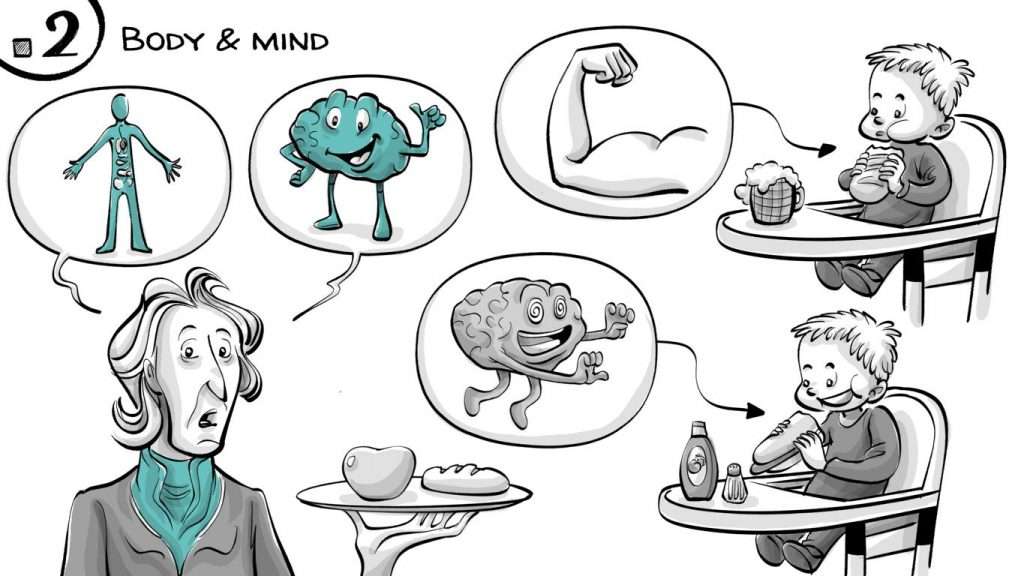
Second, body and mind develop together, which is why Locke advises nurturing Edward’s physical needs, as much as his mental ones. He recommends a plain and simple diet, such as dry bread, and a small non-alcoholic beer to make the boy strong. Rich or spiced foods should be avoided, as they are too tempting for the boy’s delicate mind.
To toughen the young body, abundant sleep on a hard bed is ideal. Exposing Edward to harsh conditions such as cold baths protects him from the common cold.
Learning and punishment
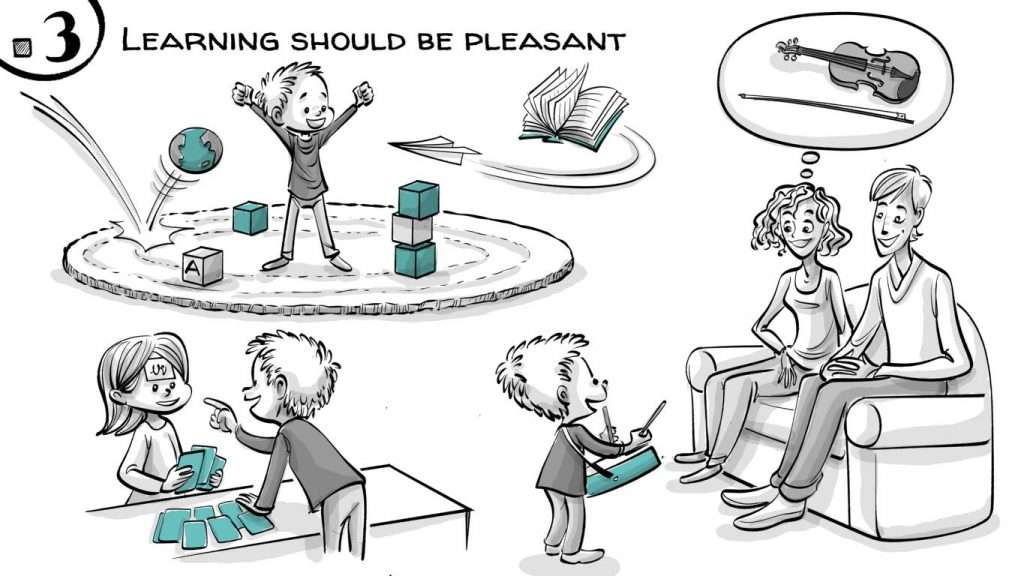
Third, learning should be pleasant. If children find academic education exciting and can choose what they like for themselves, they will then apply themselves to it industriously. To learn reading, Locke suggests games. This self-directed approach to learning allows the parents to discover and nurture their child’s natural talents.
Punishment should be avoided, as it can break a child’s spirit and it teaches the wrong values. To secure the best education, he urges the parents to hire a tutor rather than send Edward to school.
Good habits

Fourth, habits always trump rules, so parents should help their children establish clear routines and aim to become role models of rational thinking.
This will help Edward to learn how to control his desires and think rationally — to become virtuous.
Locke believed that good habits of thought prevail, while rules, which speak to the heart, fail.
However, habits are important not only because they always trump rules, but because rules consequently lead to rewards and punishments – sensations that arouse feelings instead of reason. To become a free thinker, a rationalist; a child shouldn’t be driven by rules or incentives but by esteem and fear of disgracing oneself.
John Locke
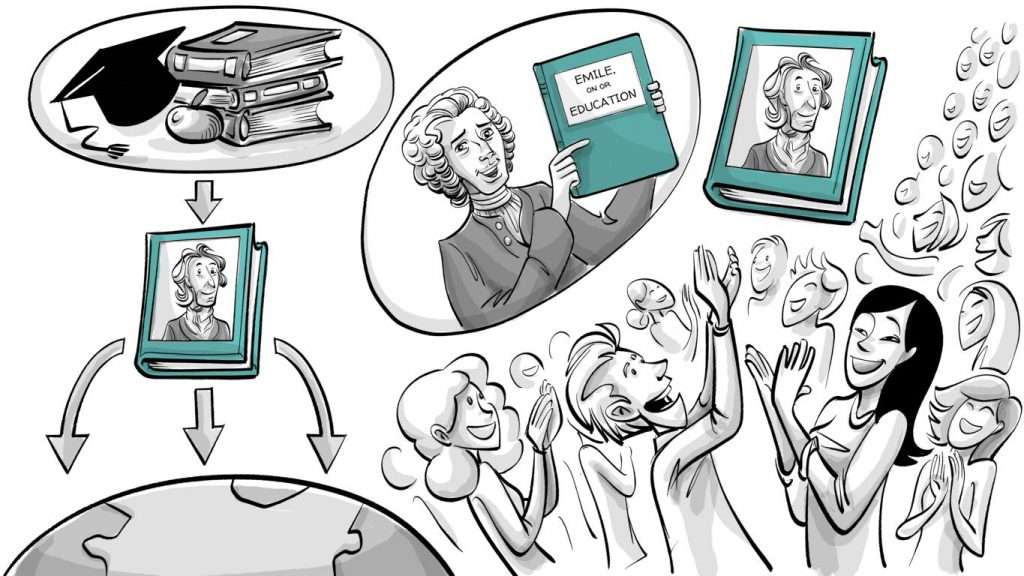
Locke’s thoughts on education were published in 1694 and became an international bestseller. Along with Rousseau’s “Emile”, his book became one of the most influential texts on educational theory and perhaps history’s most important guide to parenting.
John Locke once said that “Reading furnishes the mind only with materials of knowledge; it is thinking that makes what we read ours.”
Since the same is true for videos, we recommend creating the habit of short thinking breaks after watching something.
Afterwards, share your thoughts with others and in the same way, make new ideas forever yours.
Try that right now and tell us what you think of Locke’s ideas!
Sources
- John Locke – Wikipedia
- Two Treatises of Government – Wikipedia
- Some Thoughts Concerning Education – Wikipedia
- A Letter Concerning Toleration – Wikipedia
- John Locke – MTSU
- Associationism – Wikipedia
- Lockean Property Rights
- Some Thoughts Concerning Education – Spark Notes
- The Ideal Diet for a Child According to John Locke
- Robert Filmer – Wikipedia
- Thomas Hobbes – Wikipedia
Dig deeper!
Check out some more sprouts videos on parenting to keep learning:
- 5 Styles of Parenting
- Prenatal Development: What We Learn Inside the Womb
- Attachment Theory: How Childhood Affects Life
Classroom exercise
John Locke’s views have been widely debated across the world for over 300 years. But do they still work in this modern age? What do you think? Hold a debate and vote with your class to get to the bottom of the issue. Are there some ideas that still hold true and some that are outdated and irrelevant? Let us know what you think in the comments below.

I like Locke